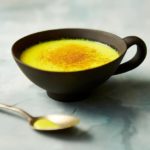A lot of us suffer from stress-related issues such as insomnia, anxiety, burnout, and digestive system disturbances. According to Ayurveda, the world’s most ancient holistic healthcare system, stress is what occurs whenever you fall of sync with nature’s cycles.
Stress relief, then, is largely a matter of realigning yourself with nature and living in harmony with its daily rhythm. In Ayurveda, daily self-care practices are called dinacharya, which means “to follow the rhythm of the day.”
Three of the most powerful stress relief practices from Ayurveda lifestyle that have really helped my students and I to transform years of anxiety are the buzzing bee breathing exercise, being of service, without strings attached, and valuing process over outcomes by practicing what is known as Karma Yoga.
Calm Anxiety with Buzzing Bee Breathing Exercise

The buzzing bee is a powerful holistic medicine for your body and mind. It calms restlessness, frustration, and anxiety. It gives your nervous system more strength and stability and is highly beneficial for cardiac disorders and clogged arteries. It helps with heart disease, high blood pressure, paralysis, migraine headaches, and hemorrhoids (considered a stress induced condition in Ayurveda). As is the case with all yoga poses and breathing exercises, these benefits will accrue more when you follow an Ayurveda diet and lifestyle to support your practice.
Buzzing bee connects you to your true, peaceful nature, giving you immediate confidence while dissolving pessimism. It decreases mental reactivity and stress and leads to increased balance and optimism.
It’s my go-to breathing exercise. I practice it each morning and have taught it to many students and clients, who always immediately feel its positive, powerful impact. Buzzing bee is extremely beneficial for creative work and study. It naturally leads into meditation.
How To Do the Buzzing Bee Breathing Exercise
Practice this is in the morning, at night (to help you sleep better), or anytime your mind experiences anxiety or stress in any other way. Enjoy buzzing your stress, anxiety, and frustration away!
-
Sit comfortably, with your back straight.
-
Bring your thumb and index finger of each hand together in the knowledge mudra (hand gesture). Keep your eyes closed and breathe slowly. This itself will calm your mind of anxiety and stress.
-
Relax your hands from the knowledge mudra. Close your ears with your thumbs.
-
Place your second and third fingers gently over your eyes, with index fingers on your forehead or eyebrows. Keep your mouth closed. Inhale deeply.
-
Slowly exhale through your nose, making a humming or buzzing sound with your throat (it’ll sound like MMMMMM). This makes one round.
-
Do two more rounds, repeating steps 2 through 5 each time. As you gain more familiarity with the practice, gradually increase to 10 to 30 repetitions. Stop any time if you feel dizzy or very light headed.
Stress Relief via “No Strings Attached” Service
In Ayurveda, mental stress is considered a major cause for a host of diseases. Much of our stress and sleepless nights come from our worries about current and/or future physical, financial, social, or emotional security.
Whenever we’re able to step out of our own suffering enough to help someone else, we automatically become filled with joy. Even if all we can do is spend an hour a week serving soup in a soup kitchen, that one hour can really help us connect with our inherent goodness, bringing out our inner sattvic glow. Alongside food and lifestyle changes, selfless service is listed as a key method of disease recovery in the ancient Ayurveda texts.
Don’t hesitate. See how you can be of service today.
Relaxation Techniques are Not Limited to What We Do, But How We Do Things
We live in a results-oriented world that prizes the end product more than the process. Karma Yoga (karma means “action” in Sanskrit – the ancient language of Yoga and Ayurveda) teaches us to put full attention on the process, letting go of attachment to its results. As the Bhagavad Gita, an ancient yogic text, says, “We have a right to our actions only and never to their results.” The fruits of our labor are always out of our hands. It’s the ego that wishes to believe it can control everything and everyone.
The way to discern whether an action is Karma Yoga is to consider how sattvic it is. Sattvic actions serve truth. They benefit others, and ourselves, while inspiring humility. Far from its frequent associations with humiliation, true humility acknowledges that we are each a mere instrument in the hands of a larger power, part of the interconnected web of relationships that comprise this universe. Humility is that feeling of smallness that washes over you whenever you stand by the ocean.
If you are serving others out of a need to gain approval, for instance, or are working only for money or an external reward or promotion without enjoying the process of working, you are not practicing Karma Yoga. In practicing Karma Yoga, you serve and work out of gratitude for all you’ve received. You feel much more freedom and joy in your actions with an attitude of Karma Yoga. Rather than get overwhelmed by stress, you can feel satisfied to have the opportunity to serve in some way.
Try reorienting yourself toward valuing the process over outcome in any context, not just service. Notice how much more freedom you feel in each unfolding moment.
Learn more at Whole Yoga & Ayurveda





Join the Conversation